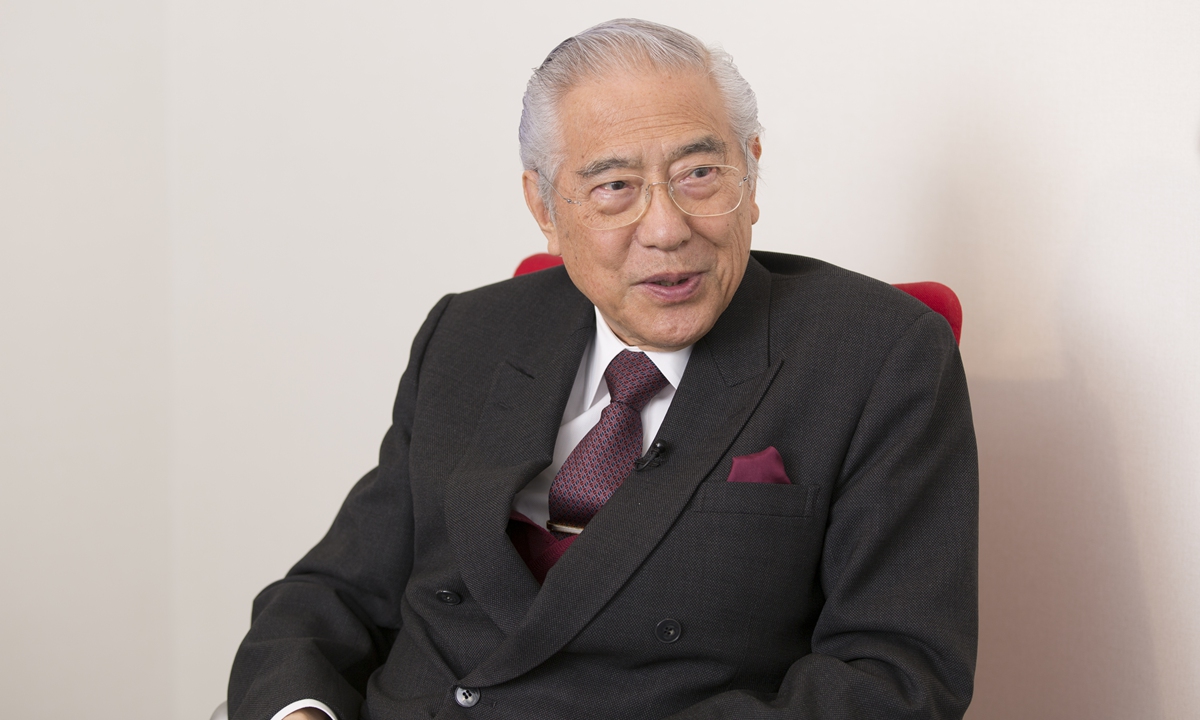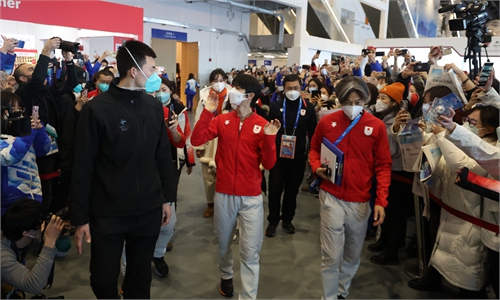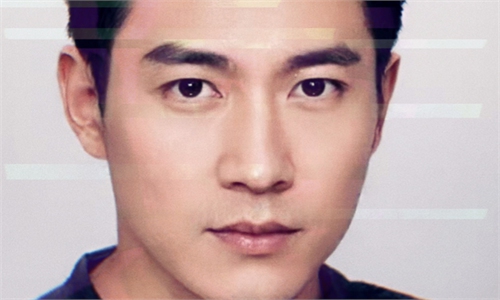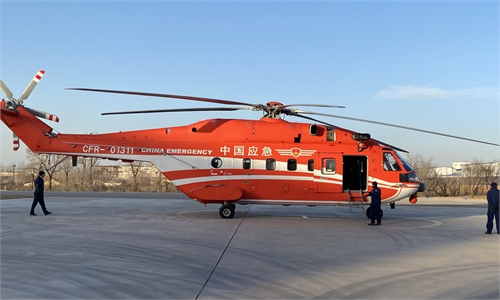Exclusive: Beijing 2022 a ‘catalyst’ for Japan-China friendship: former veteran Japanese diplomat Ogura

Kazuo Ogura, President of Nippon Foundation Parasports Support Center Photo: Courtesy of Kazuo Ogura
The unusual popularity of Japanese athletes and reporters on Chinese social media, especially skater Yuzuru Hanyu mania, during the Beijing Winter Olympic has captured global attention under the looming shadow of deteriorating China-Japan relations.In an exclusive interview with the Global Times on Tuesday, Kazuo Ogura, former senior Japanese diplomat and President of the Nippon Foundation Parasports Support Center, said he does not believe that people to people exchanges between Japan and China have worsened and the successful hosting of the Beijing 2022 Winter Olympics will serve as a "catalyst" to further deepen friendly relations between the two countries.
The 83-year-old Kazuo Ogura entered the Japanese Foreign Ministry in 1962 and served as ambassador in Japanese missions in Vietnam, South Korea, and France. He also acted as president of the Japan Foundation and later as secretary general of the Tokyo 2020 Olympics and Paralympics Bid Committee.
He told the Global Times that "state exchanges" and "people exchanges" can be seen as two dimensions as the former are underpinned by diplomacy and politics, which will certainly encounter difficulties.
The veteran diplomat spoke highly of the Beijing 2022 Winter Olympics, saying that the successful hosting of the Games despite all difficulties brought about by COVID-19 is significant in itself.
"Winter sports such as skating and skiing are expected to become more popular in Asian countries with the Beijing Winter Olympics as an opportunity. The PyeongChang 2018, the Tokyo 2020, and the Beijing 2022 Games are three consecutive Olympic events hosted by Asian countries in just a few years, which helped the international community understand the real Asia. More importantly, it represents the inheritance and development of the Olympic spirit," Ogura said.
According to Ogura, the Olympic spirit can be understood in many ways, among which "continuity" is particularly important, which is also called "inheritance." Under the COVID-19 pandemic, the Olympic Games in Tokyo in 2021 and the Winter Olympics in Beijing this year were made possible by strict epidemic prevention measures. This is a continuation of the Asian spirit as well as the Olympic spirit, which values "patience" and "discipline."
Tuesday also marked the Chinese traditional Lantern Festival, when athletes from all over the world participated in typical Lantern Festival activities such as eating stuffed rice balls, hanging lanterns, solving lantern riddles, and experiencing traditional Chinese culture in the Olympic Village.
Ogura said the Beijing 2022 Winter Olympics is not only a sports gala, but also an opportunity for athletes from all over the world to get to know more about China. He also mentioned coincidental detail - the opening ceremony of the Beijing Games fell on February 4 which marks the Chinese solar term lichun - the beginning of spring, which he sees as a symbol of bringing hope and energy to the world still plagued by the coronavirus disease.
Ahead of the Beijing 2022 Winter Olympics, some US-led Western countries incessantly attempted to politicize the Games, calling for a so-called boycott of the Game, which greatly worried Ogura.
He stressed that sport has no national boundaries and sporting events should be an opportunity for global participation. It is true that the Beijing 2022 Winter Olympics have encountered certain political problems, but this should not prevent more countries and more people from taking this opportunity to participate in winter sports. In this sense, the Beijing 2022 Winter Olympics have made a real difference, he said.
In a previous media interview, Ogura said that the human rights issue is a worldwide problem. The US has a problem with racism and Japan has a problem with gender discrimination. In other words, all countries sit on the same side of the table, facing the "human rights issue" on the other. The international community should consider human rights together.
During the Tokyo Olympics, the International Olympic Committee amended its "Faster, Higher, Stronger" motto to include the word "Together." The motto of the Beijing Olympics is "Together for a shared future," which, in his view, means that Japan and China share a "common spirit" and "take concrete actions" toward the future together. The two sides, for example, can work together to solve common problems such as environmental issues, safeguarding younger generations, and epidemic prevention measures.
As China and Japan welcome the 50th anniversary of normalization of diplomatic ties this year, some Chinese observers believe that similar to Ai Fukuhara fever, Hanyu mania is a great opportunity to see China-Japan ties improving, which were strained in the past year mainly due to Japan's frequent and joint military provocations with the US in the South China Sea.
Recalling what former Chinese premier Zhou Enlai said at the normalization event - we should remember the water-well digger in drinking water - Ogura, as an important witness to the moment, said Japan-China relations have come to where they are today thanks to the accumulation of efforts, great and small, of many people throughout their lives. There have been many such "well diggers" between Japan and China in the past 50 years and we must cherish this hard-won relationship.
During the combat against COVID-19 in 2020, an ancient poem in Chinese printed on boxes of supplies donated by Japanese organizations to Central China's Hubei Province is a clear mirror of China-Japan relations. "Though miles apart, we are under the same sky."




